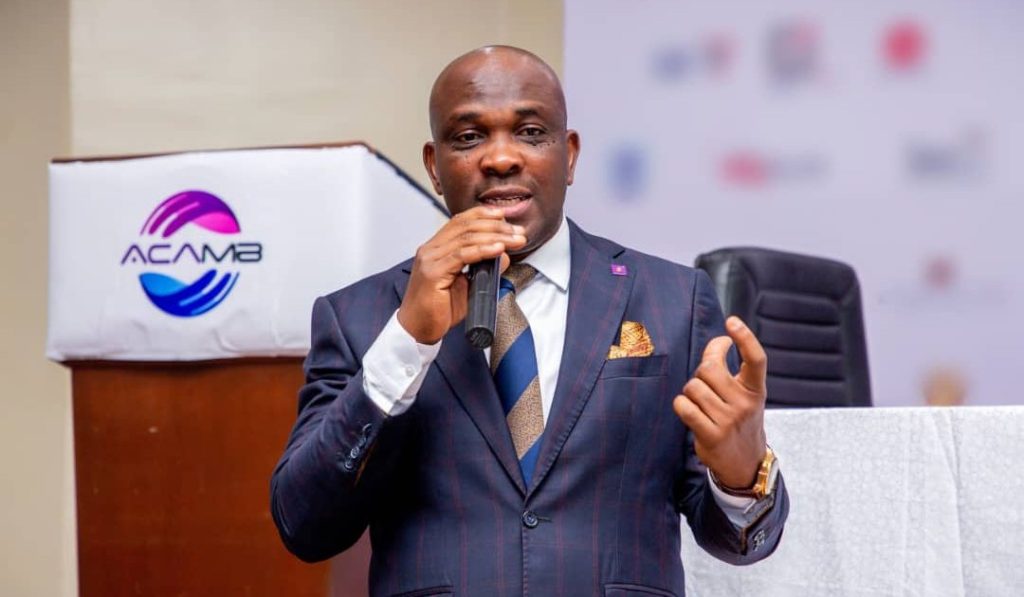The Nigerian financial landscape is currently grappling with a significant debt impasse between banks and telecommunication companies, stemming from the utilization of the Unstructured Supplementary Service Data (USSD) platform for banking services. The Nigerian Communications Commission (NCC), the regulatory body overseeing the telecom sector, has issued a stern warning to disconnect banks from the USSD platform if they fail to settle their outstanding debts, which have collectively reached a staggering N200 billion. This potential disconnection threatens to disrupt access to crucial banking services for millions of Nigerians, particularly those at the lower rungs of the societal ladder who rely heavily on the USSD platform for their financial transactions. The looming disconnection has sparked concerns among stakeholders, leading to calls for continuous dialogue and amicable resolution to avert the potentially devastating impact on the Nigerian economy and its citizens.
The Association of Corporate Affairs Managers of Banks (ACAMB) has taken a proactive stance, advocating for ongoing discussions to prevent the disconnection of USSD services. ACAMB recognizes the vital role the platform plays in providing financial inclusion, especially for the retail segment of the population. Disconnecting the service would sever a critical lifeline for millions of Nigerians who depend on USSD for basic transactions like transferring funds, checking account balances, purchasing airtime and data, and accessing small loans. These individuals, often financially vulnerable, would be disproportionately affected by the loss of access to these essential financial services. The potential disruption could have ripple effects throughout the economy, hindering commerce and financial transactions at the grassroots level. ACAMB emphasizes the importance of finding a mutually beneficial solution that safeguards the interests of both the banking and telecom sectors, as well as the millions of Nigerian customers who rely on the USSD platform.
The debt dispute highlights the complex interdependencies between the banking and telecom industries in Nigeria. While banks have accrued substantial debts to telecom operators for utilizing the USSD infrastructure, telecom companies also hold significant exposures to the banking sector in the form of loans. This reciprocal financial relationship underscores the need for a collaborative approach to resolving the current impasse. ACAMB acknowledges the ongoing efforts by stakeholders, including banks, telecom operators, and regulators, to reach an amicable settlement regarding the outstanding USSD debts. They express optimism that a resolution can be achieved without resorting to service disconnection, which would be detrimental to all parties involved. ACAMB encourages both sectors to continue exploring mutually beneficial solutions that reinforce their interconnectedness and promote financial stability within the Nigerian economy.
The intricate dynamics of the USSD debt issue are further illuminated by recent revelations regarding individual banks’ payment status. Access Bank, one of the leading financial institutions in Nigeria, has reportedly settled its portion of the outstanding debt. This development offers a glimmer of hope that other banks may follow suit, paving the way for a comprehensive resolution. However, industry sources indicate that only a handful of banks have fully offset their debts, underscoring the magnitude of the challenge that still lies ahead. While some banks are actively engaged in reconciliation efforts to ascertain the accurate amount owed, others are still negotiating with telecom operators to reach mutually agreeable payment terms. The situation calls for transparency and accountability from all stakeholders to ensure a fair and equitable resolution that protects the interests of both the banks and the telecom companies.
The potential disconnection of USSD services carries far-reaching implications for the Nigerian economy. Beyond the immediate impact on individual customers, it could undermine financial inclusion efforts, hinder economic growth, and erode public confidence in the financial sector. The USSD platform has played a crucial role in expanding access to financial services in Nigeria, particularly in rural and underserved areas where traditional banking infrastructure is limited. Disrupting this channel could exacerbate financial inequalities and impede progress toward achieving greater financial inclusion. Furthermore, the disruption could negatively affect businesses that rely on USSD for transactions, impacting their operations and potentially leading to job losses. The prolonged uncertainty surrounding the USSD debt issue could also create a climate of distrust among investors and stakeholders, potentially hindering investment in the Nigerian economy.
The USSD debt crisis underscores the critical need for proactive and effective regulation in the Nigerian telecommunications and banking sectors. The NCC, as the telecom regulator, plays a vital role in ensuring that the interests of both operators and consumers are protected. While their threat to disconnect banks may have served as a catalyst for action, it is essential that all regulatory actions are taken in a measured and transparent manner, with due consideration for the potential consequences. The Central Bank of Nigeria (CBN), as the banking sector regulator, also has a crucial role to play in facilitating dialogue and ensuring that banks comply with their obligations to telecom operators. A collaborative approach between the NCC and the CBN, along with active engagement from industry stakeholders, is vital to achieving a sustainable resolution that safeguards the stability and growth of the Nigerian financial ecosystem. This collective effort must prioritize the long-term interests of all stakeholders, with a particular focus on ensuring that the Nigerian public does not bear the brunt of this dispute.


